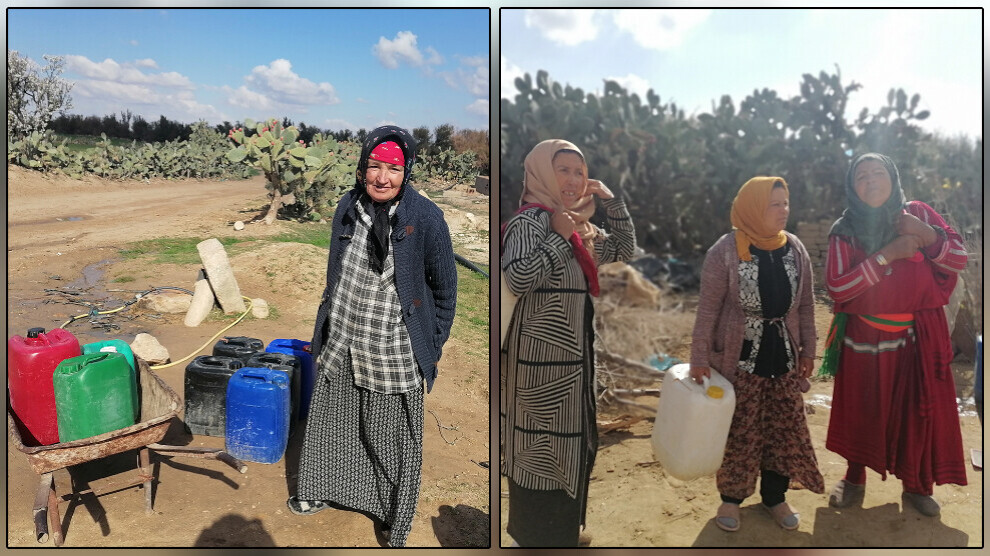Women in rural areas of Kairouan walk for kilometers to fetch water
Women living in rural areas of Tunisia’s Kairouan governorate have to walk for kilometers to fetch water.

IHLAS HAMRUNI
Tunisia- Tunisia ranked first in the number of protests demanding safe drinking water between 2019 and 2020, according to the statistics of the Tunisian Social Observatory, affiliated with the Tunisian Forum for Social and Economic Rights ( Forum Tunisien pour les Droits Économiques et Sociaux, FTDES). The effects of the water crisis in Tunisia are felt more in the rural areas of Tunisia’s Kairouan governorate. Women are the most affected by the water crisis. Women living in the rural areas of Kairouan governorate have to walk for kilometers to fetch water.
Aisha Taia, a woman living in the rural areas of Kairouan governorate, told NuJINHA that they could not even wash the dead bodies due to the water crisis. “We need water to do the housework such as laundry, cooking, washing the dishes and taking a bath but we do not have it. All we want is water.” Aisha Taia also told us that the women living in the rural areas had to walk more than six kilometers to fetch water. “Some use donkeys while some walk. We have to fetch water twice in summer.”
‘We have to walk for hours to fetch water’
“We have to walk for hours to fetch water since our neighborhood has no water supply network,” said Jamila Saad Al-Lawi. “We carry big plastic water containers and cover long distances to collect water. Some of our neighbors have water wells and they sometimes give us water.”
‘They suffer from a severe water shortage’
NuJINHA spoke to Mounira Al-Majbri, coordinator of the Environmental Justice Department at the FTDES in Kairouan Governorate, about the challenges faced by women in the rural areas due to water shortage. “Most of the residents of Kairouan, especially women living in the rural areas, suffer from a severe water shortage,” she said. “Rural women bear many responsibilities. They work in agriculture and do the housework. The task of fetching water falls largely on women and girls in rural areas. They are subjected to many dangers such as harassment, rape, and all forms of violence while searching for water.”
Mounira Al-Majbri told us that many women suffered from back pain, “Because they carry very heavy containers while fetching water. One pregnant woman had a miscarriage because she had carried very heavy water containers.”
